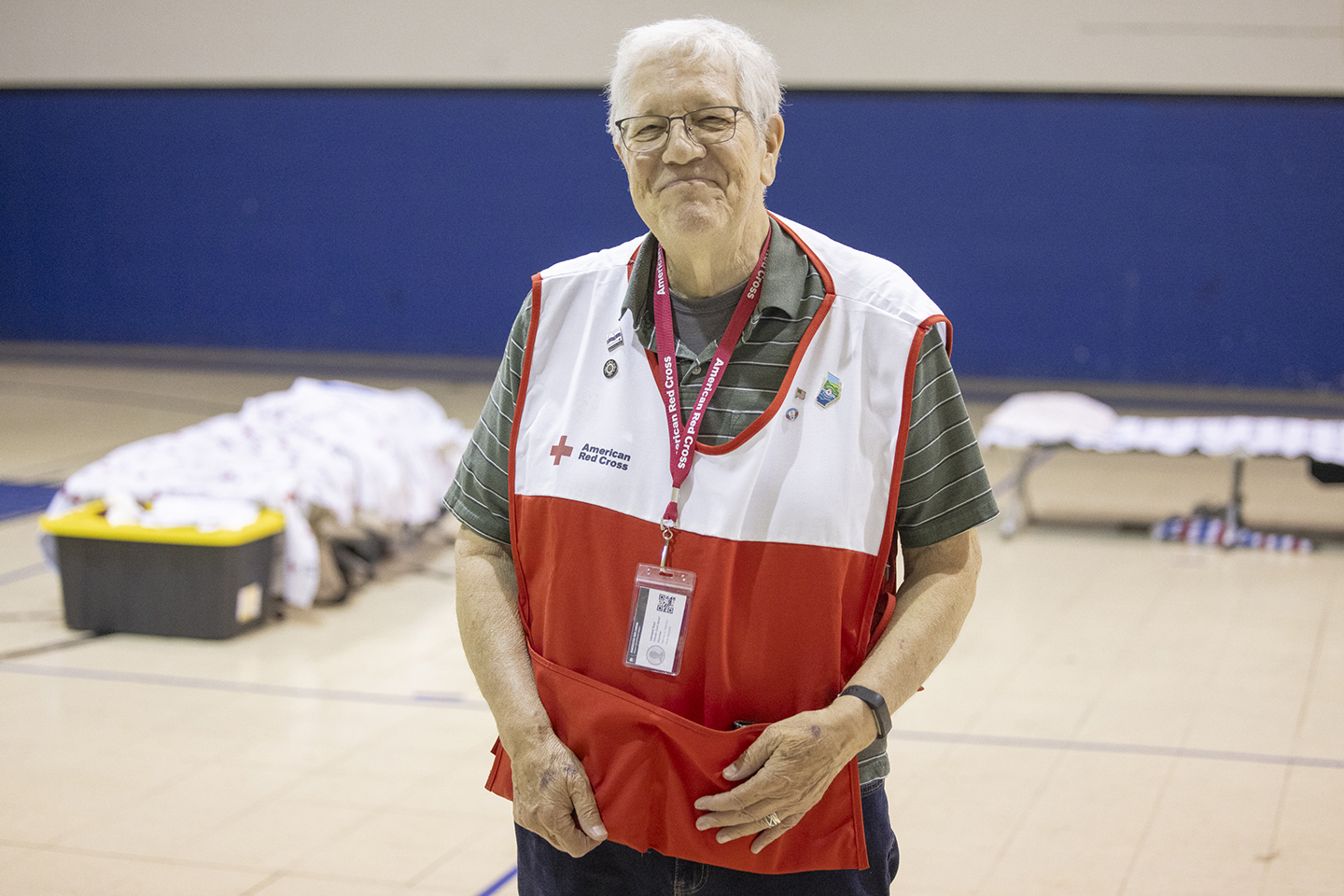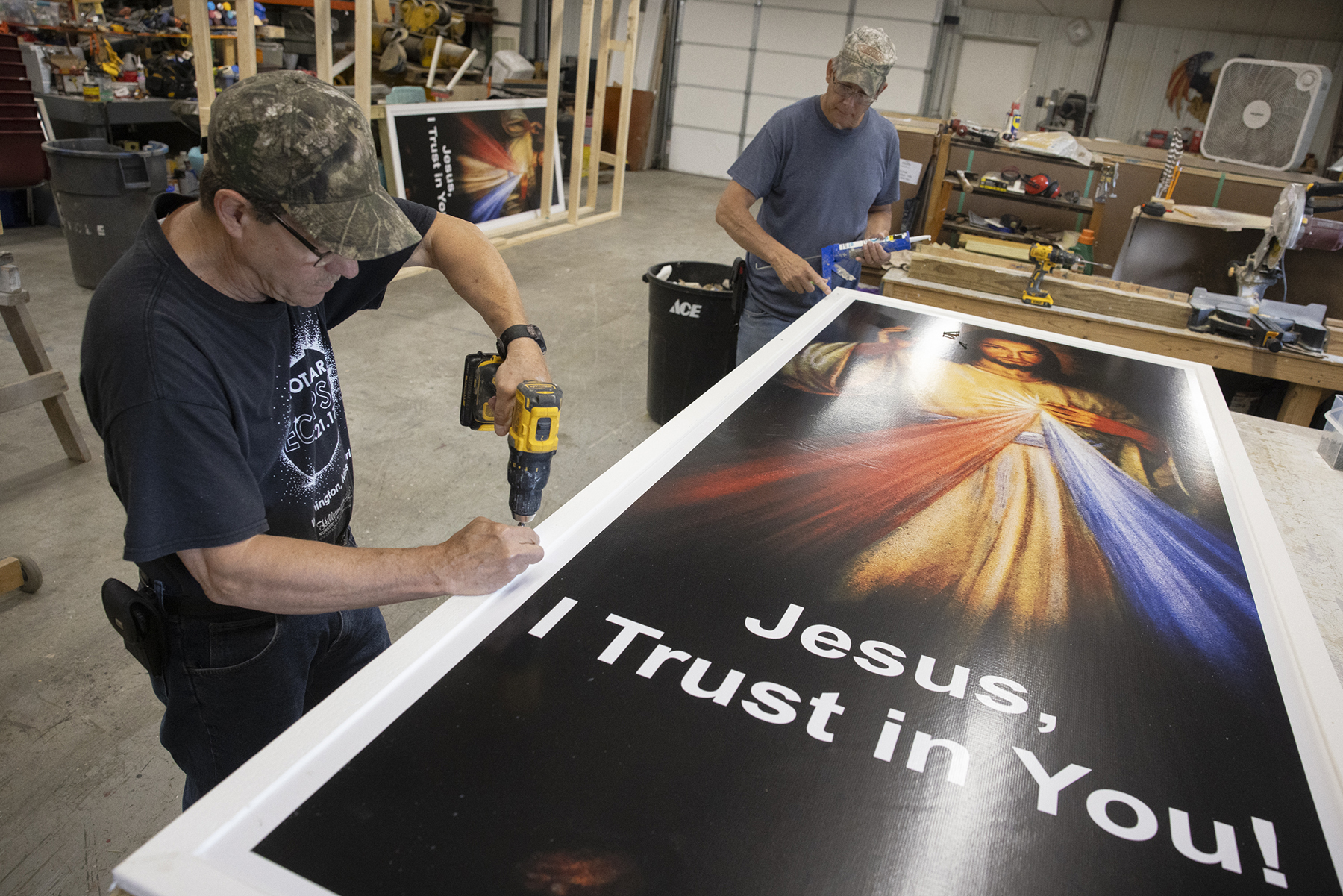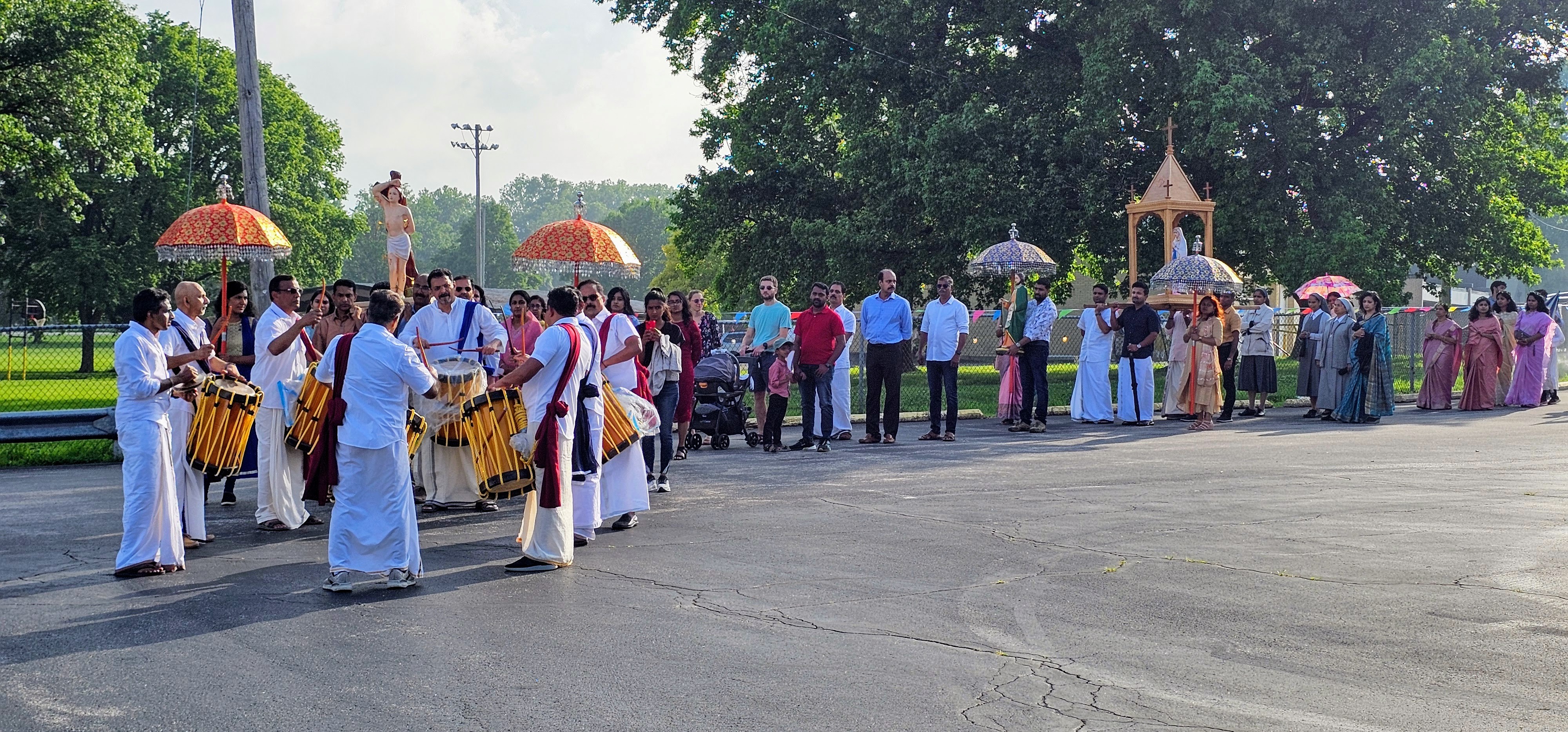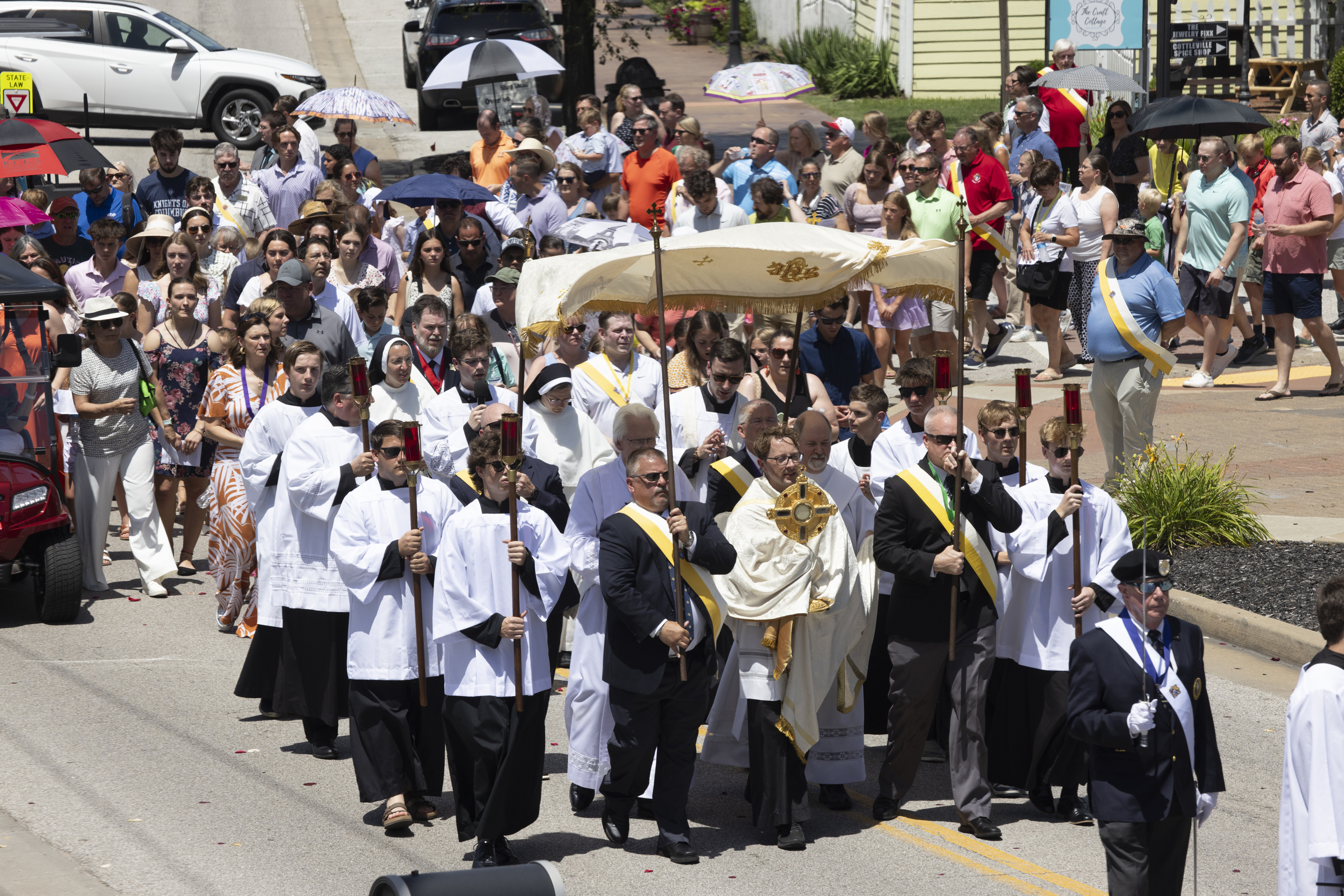At archdiocesan ‘teach-in,’ high school students lean in to discuss race, culture
Prior to showing up at the Cardinal Rigali Center last week, students were instructed not to wear anything that would identify what high school they attend.
As any lifelong St. Louisan knows, the mere mention of high school affixes a preconceived understanding to a person — call it a prejudice, if you will. And labeling was one thing organizers of the Culture and Race Teach-In did not want students to bring to the table that day.
Nearly 200 students and faculty from 19 Catholic high schools attended the daylong workshop March 2 organized by the archdiocesan Peace and Justice Commission and the Catholic Education Office. Students listened to speakers — including adults and their peers — share their experiences of racism and participated in table discussions.
“People spend way too much time in the media and online talking at each other, or worse, sometimes talking past each other,” said Kurt Nelson, superintendent of Catholic education for the archdiocese. “We really wanted today to be a day where we’re talking with one another. Today we are all children of God. And we’re beginning this journey of Lent together by praying and working to better understand one another.”
Race and racism are relatively newer terms in the history of humankind, explained Father Art Cavitt, executive director of the St. Charles Lwanga Center, which provides ministry to the African-American Catholic community in the archdiocese.
We must rely on the words of Christ who called on us to love one another, including those who look different than us. Our Catholic schools help young people keep focused on that idea, he said. And above all, we must learn to love and respect ourselves and the gifts God has given us in order to love others.
“So many people don’t like themselves having been stomped over and stepped over,” Father Cavitt said. “If I feel that my (self) worth is not worth anything, how do I feel about you? I don’t respect you, I don’t respect your life, I don’t respect your property, I don’t respect anything for the fact that I feel lousy about who I am.”
Students performed skits and watched a video, which prompted small group discussions about their experiences with racism. After a lunch break, they heard from Msgr. Eugene Morris on his individual experiences as an African-American priest.
Msgr. Morris, an archdiocesan priest in residence at Our Lady of Sorrows, described the challenges of growing up in a primarily white Catholic school environment and being told by his parents that he had to work harder and achieve more and to be careful in trusting others because of the color of his skin.
Part of how we better understand issues related to race lies in having personal discussions with one another about it, Msgr. Morris said. He’s often been told by both black and white people “who I am and what they think I ought to be.” He implored them to consider and embrace their sense of self.
“We are bombarded, whether it be because of the color of our skin or the place where we grew up … a whole host of things that people put on us,” he said. “And if we don’t have a sense of self at times those things can be burdensome and they can be overwhelming and lead to dangerous ways of understanding and interacting with the world.”
It was perhaps the students’ interactions with one another that was the most impactful part of the gathering. They shared their personal experiences with one another, including Natasha Vandamme, who acknowledged to those at her table that most everyone has been referred to in a negative way at one point or another in their lives. The key to overcoming racism is speaking up when those instances occur.
Vandamme shared a story of how her best friend, who is African American, several years ago won an equality award at her school. Several students in response made negative, racially-motivated comments about the friend.
“I can’t watch this and let it go by,” she recalled. “She’s my best friend. I said, ‘That’s not OK.'” The situation was handled by school officials, but Vandamme said she wished the community would have used it as an opportunity to discuss racism.
“You have to talk about the hard issues,” she said.
Activities for high school teens
The Harmony Project: The collaboration of Catholic high schools promotes and addresses topics related to diversity. The group sponsors activities throughout the year.
The Harmony Project is sponsoring an anti-oppression workshop for high school students on Saturday, April 29, from 10 a.m.-2 p.m. at Chaminade College Preparatory School in Creve Coeur. The National Conference for Community and Justice will facilitate a discussion about racism, sexism and the intersection of all forms of oppression. Cost is $5 per person, and a pizza lunch will be provided. RSVP by April 14 to Dan Stout at dstout@chaminade-stl.org.
SPARC: Students Participating for Active Real Change is a group of 25 area high schools that meets after school monthly to discuss issues related to social justice and participate in community service, all with a desire to “spark real change” in the community. The group was organized by students at Cor Jesu Academy and St. Louis University High School. For more information, contact stlsparc@gmail.com.
Peace and Justice Commission: The archdiocesan Peace and Justice Commission was formed in 2015 as a diverse group of people who have developed priorities through looking at how issues affecting the region specifically impact the family. To learn more about the commission, visit www.archstl.org/peace-justice.
RELATED ARTICLE(S):
Prior to showing up at the Cardinal Rigali Center last week, students were instructed not to wear anything that would identify what high school they attend. As any lifelong St. … At archdiocesan ‘teach-in,’ high school students lean in to discuss race, culture
Subscribe to Read All St. Louis Review Stories
All readers receive 5 stories to read free per month. After that, readers will need to be logged in.
If you are currently receive the St. Louis Review at your home or office, please send your name and address (and subscriber id if you know it) to subscriptions@stlouisreview.com to get your login information.
If you are not currently a subscriber to the St. Louis Review, please contact subscriptions@stlouisreview.com for information on how to subscribe.







